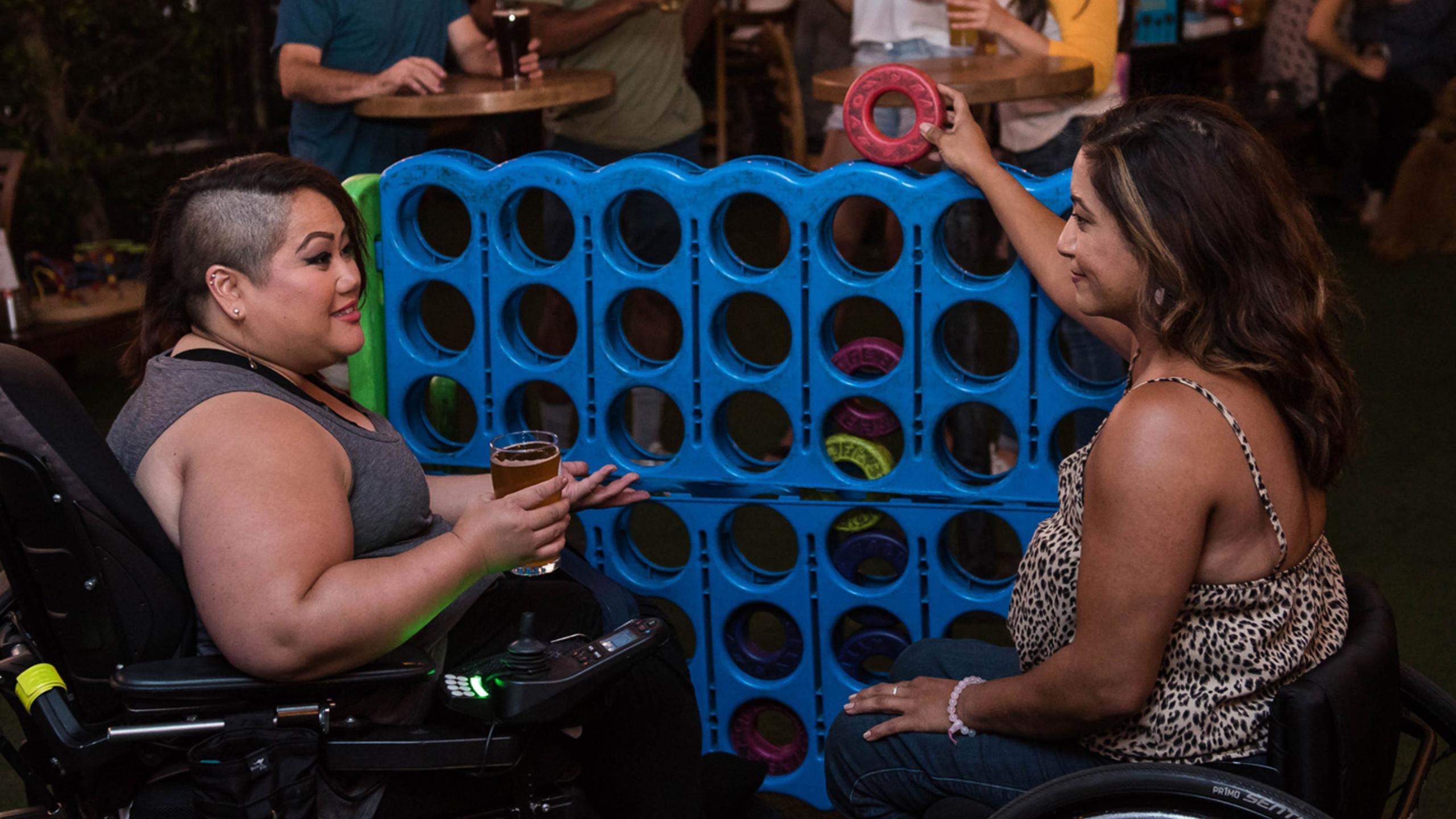
I was having a conversation with a man that I haven’t really talked to before. Mostly because I am talking with others that I know more when this guy and I are at the same place. He’s busy talking to his friends too, so we don't really have time for a conversation together.
A disability service event
At a ball night for clients of a disability service, I entered the lobby where everyone was waiting before the ballroom doors opened. I drove around the lobby in my wheelchair in search of people that I knew and to find out where people got their name badges from.
I later found out that my support workers had my name badge and I managed to find some of my friends in the lobby.
The lobby was full of people I didn't know. I’m the kind of person that talks to people I know the most in a crowd.
Talking with John
I found John (let’s just call him that) and we started talking. It was really loud, so it was hard to hear each other, but we persevered and continued to have a conversation.
John uses an electric wheelchair, like me. He can speak, but only quietly and softly.
So, a person must listen closely and patiently to what he says. Otherwise, what he says isn’t taken seriously.
Not long after we started talking, the doors opened to let everybody into the ballroom. A support worker came along and ordered me to move out the way so she could hurry John to his assigned table.
Huh? I’m confused. Were we there to have a good time or just there as pawns? I was annoyed and my night was ruined!
John was still trying to tell me about his favourite hobby. I was really intrigued by his first sentence that I managed to understand. Then, our conversation was overridden by this particular support worker’s desires.
The support worker was more concerned with John and I getting on with the programme rather than if we were enjoying ourselves.
Enjoying conversation denied
Talking to people can present opportunities to us or give us enjoyment. Being denied conversation also means opportunities and enjoyment being denied.
I felt we were denied the right to continue enjoying our conversation when John’s support worker told us to move. I’m sure if we were two abled-bodied men talking, we wouldn’t have been rushed in by anyone.
However, we were two men in wheelchairs who each have speech impediments. It is much easier to overlook the connection and conversation that’s taking place. This particular support worker didn’t acknowledge we were talking because she couldn’t understand or hear what we were saying.
The privileged talkers
When we talk about the privileged, we are usually talking about the rich and the poor, those who are wealthy being the privileged ones. However, I am calling those who can talk and communicate without any problems privileged!
Communication is valuable and more so than money. Money can buy us products and services. Being able to engage in conversations can lead to new friendships.
Communication is the exchange rate we use to make connections, grow relationships and gain opportunities. Those that have no difficulties speaking may take this fact for granted.
However, it takes more effort than usual to achieve these things when our ability to speak is weak or impaired—what’s more when a conversation between two guys with speaking difficulties is overlooked, devalued and seen as unimportant.
Well, that’s the impression I got from the support worker’s face. I must say that not many support workers have this attitude. However, I want to highlight how hard it is for those of us that have speech impediments to communicate.
I know it wasn’t the ideal place for us to have a conversation, given we were in the midst of a crowd. Yet, we should always attempt to talk to people.
A person may not be able to speak very well. However, they desire to talk and connect with others just as much as anyone that can speak clearly.
Let’s always be open to having a conversation, no matter what it takes!
Contributor: Manuele Teofilo
Manuele lives in South Auckland with his parents and siblings, where he attends Manukau City Baptist Church. He has graduated from the University of Auckland with a Bachelor of Human Service. Now he works at Elevate Christian Disability Trust. He enjoys getting around in his electric wheelchair and having fun with people.
This article was originally published on the Christian Today website and is used with permission.


